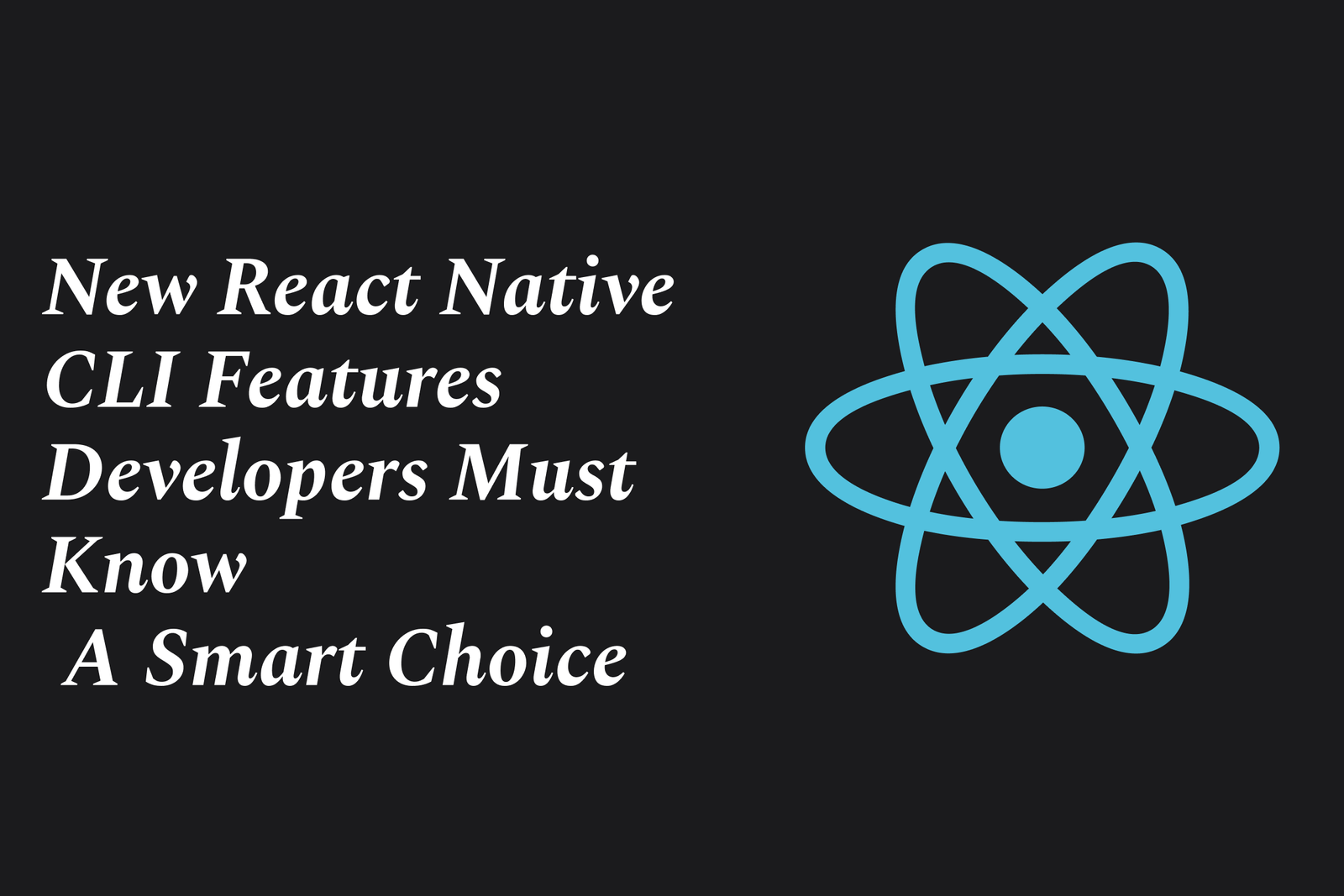New React Native CLI features developers must know
The new React Native CLI features streamline app development by enhancing native integration, improving project setup, and offering better support for custom native modules. These updates help developers build more efficient, scalable apps with greater control over native code and dependencies.
New React Native CLI Features Developers Must Know
1 ) React Native Framework vs. Bare React Native
React Native enables developers familiar with React to build native mobile apps, supporting both React newcomers and experienced platform developers.
Using a Framework like Expo is highly recommended for most new apps as it offers a comprehensive toolbox with ready made APIs, saving development time.
Without a Framework, developers must create or assemble many core functionalities themselves, increasing complexity and maintenance effort.
Frameworks provide essential features such as navigation, native API access, and dependency management out of the box.
2 ) Expo: The Leading React Native Framework
Expo is a free, open source production grade Framework that extends React Native with developer friendly tools.
Key features include file based routing, a standardized library of native modules, and plugin support to customize native code without direct native file management.
Regularly updated in collaboration with the core React Native team at Meta, Expo keeps pace with the latest React Native capabilities.
Expo Application Services (EAS) offer additional optional services to assist in the complete app development lifecycle.
Getting started is easy via the command: `npx create expo app@latest`.
3 ) Expo Go vs. Expo Development Builds
For rapid development, Expo Go allows running apps instantly on devices without building native binaries, ideal for prototypes and development phases.
Expo Development Builds are custom native builds that include your app specific native code and dependencies, required for accessing advanced native functionalities.
This distinction is important for apps requiring native modules not supported by the standard Expo Go client.
4 ) React Native CLI and Industry Adoption
React Native CLI allows developers to create apps without relying on a Framework, suitable for projects with specialized constraints or custom native requirements.
While powerful, using React Native CLI demands more setup and maintenance effort compared to Frameworks like Expo.
In industry practice, Expo has become a prevalent standard for many companies due to its streamlined development process, but React Native CLI remains crucial for fully customized or complex native features.
Developers should evaluate their project needs carefully to choose between using Expo, React Native CLI, or a hybrid approach.
5 ) Getting Started and Learning Resources
React Native documentation provides comprehensive guidance suitable for all experience levels, including interactive examples that can be run directly in the browser through Snack Player.
Foundational knowledge of JavaScript and optionally React is beneficial to leverage React Native effectively.
Developer notes and platform specific explanations cater to diverse backgrounds including web, Android, and iOS development.
For environment setup, React Native docs recommend starting with Expo for new projects, with instructions for setting up bare React Native environments also available.
Summary:
React Native development has evolved with powerful CLI and Framework tools, where Expo stands out as a robust Framework simplifying native app development with extensive ready to use features. Developers must understand the differences between Expo Go and Development Builds, and whether to use Expo or React Native CLI based on project requirements. Leveraging these new CLI features and Framework capabilities can significantly enhance productivity and app quality in the React Native ecosystem.
https://justacademy.in/news-detail/android-launchers-with-new-capabilities
https://justacademy.in/news-detail/android-power-management-enhancements
https://justacademy.in/news-detail/android-security-audit-tools
https://justacademy.in/news-detail/how-react-native-is-simplifying-mobile-app-maintenance
https://justacademy.in/news-detail/flutter-for-ar/vr-apps-in-2025
Related Posts
In 2025, top Angular libraries offer modern, feature-rich components and tools for building dynamic web apps. From powerful data grids to low-code platforms like UI Bakery, these libraries enhance development speed, UI design, and scalability, making them essential for Angular developers.
Migrating from AngularJS to Angular 17 involves gradually upgrading your app by running both frameworks together using tools like ngUpgrade, rewriting components in TypeScript, and adopting Angular’s modern architecture to enhance performance, maintainability, and long-term support.
Angular state management tools help organize and handle app data efficiently, improving scalability and maintainability. Popular options include NgRx for robust, RxJS-based patterns, and newer Signal Store solutions that offer simpler, reactive approaches integrated tightly with Angular’s latest features.
RxJS in Angular empowers developers to manage asynchronous data streams with powerful operators like `forkJoin`, `combineLatest`, and `zip`. Mastering these key operators in 2025 is essential for building efficient, reactive applications that handle complex event sequences seamlessly.
Angular performance optimization in 2025 focuses on improving app speed and responsiveness by using techniques like OnPush change detection, lazy loading, efficient data caching, and AOT compilation. These practices reduce load times, enhance user experience, and ensure scalable, fast Angular applications.
In 2025, Angular remains preferred for large-scale, enterprise apps with its robust, all-in-one framework, while Vue attracts developers seeking simplicity and fast development for smaller projects. Both frameworks excel, with choice driven by project needs and team expertise.
Angular Signals are a new reactive primitive in Angular 16 that enable fine-grained, efficient change detection by automatically tracking dependencies and updating only affected parts of the UI. They simplify state management and boost app performance, revolutionizing Angular's reactivity model.
Angular interview questions to prepare in 2025 focus on core concepts like components, directives, data binding, routing, and dependency injection, along with TypeScript mastery and latest Angular features to ensure strong practical knowledge for building scalable, efficient web applications.
AngularJS reached its official end of support in January 2022, meaning no further updates or security patches. To ensure app security and performance, developers should consider migrating to modern Angular versions or seek third-party long-term support options if immediate migration isn’t possible.
The Angular Roadmap 2025 highlights upcoming features focused on improving developer experience and performance, including zoneless Angular, Signals integration, enhanced Forms, async data handling, improved HMR, and expanded Angular Material/CDK enhancements, driving modern, efficient web app development.










